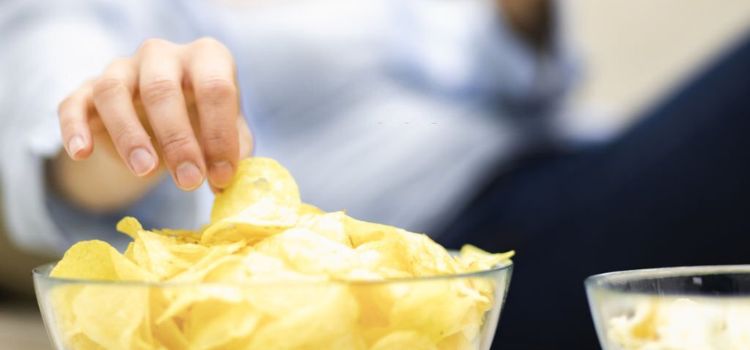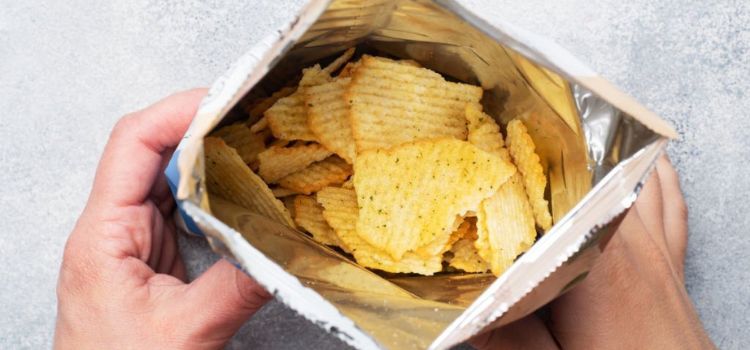As an Amazon Associate, I earn from qualifying purchases

Worries about dental health often prompt the question: Do chips cause cavities? The link between diet and oral hygiene is a crucial consideration for maintaining optimal dental well-being. In this exploration, we delve into the potential connection between consuming chips and cavity development. As a popular snack choice, chips’ crispy texture and carbohydrate content raise concerns about their impact on tooth health. Join us as we delve into the world of oral care, shedding light on the factors surrounding chip consumption and cavity formation. Discover how to enjoy your favorite treats while prioritizing oral health and making informed choices for a radiant smile.
How Cavities Form
To understand the potential relationship between chips and cavities, it’s essential to grasp how cavities form in the first place.
Dental cavities, also known as caries or tooth decay, are primarily the result of bacteria present in the mouth. These bacteria interact with the sugars and carbohydrates from the foods we consume, producing acids that erode the protective enamel of our teeth.
The Chips Conundrum

Chips, often made from potatoes or corn, can pose a challenge to dental health due to their starchy composition and crispy texture. Starches are complex carbohydrates that break down into simple sugars. When these particles become lodged between teeth or in crevices, they provide a feeding ground for bacteria, leading to the production of those erosive acids.
Furthermore, the crunchiness of chips can cause them to stick to teeth, increasing the likelihood of prolonged exposure to these acids. This raises the question: Are chips directly responsible for cavities, or are other factors at play?
pH and Oral Health
The pH level of our mouths plays a crucial role in determining oral health. An acidic environment encourages enamel demineralization, which is the initial step toward cavity formation. Chips can contribute to this acidity due to factors like flavor enhancers and additives that intensify taste but may inadvertently lower the mouth’s pH.
Learn More Are Chips Bad for Your Teeth?
Snacking Habits
The frequency of snacking can be just as impactful as the type of snack consumed. It’s better to indulge in a larger quantity of chips in one sitting rather than spreading them throughout the day. This is because the mouth’s saliva acts as a natural defense mechanism against cavity-causing bacteria. Frequent snacking disrupts saliva’s protective effects, allowing acids to linger longer.
Mitigating Cavity Risk
Opting for chips that are less likely to get trapped between teeth, such as thin and unflavored varieties, can help reduce cavity risk. Additionally, oral hygiene practices like brushing and flossing after enjoying chips can help remove food particles and reduce acid buildup.
Balanced Diets and Oral Care
It’s important to view chips as part of an overall diet. Enjoying chips occasionally alongside a nutrient-rich diet can minimize their potential harm. Nutrients like calcium, vitamin D, and phosphates contribute to strong teeth and can counteract the effects of acids produced by bacteria.
The Role of Dentists
Regular dental visits are paramount in preventing cavities. Dentists can provide professional cleanings that remove plaque and offer personalized guidance on maintaining oral health. They can also address concerns about snack choices and offer alternatives that are less detrimental to teeth.
Dispelling Common Misconceptions
Comparing chips to other sugary snacks reveals that the risk they pose isn’t significantly higher. The notion that chips have “no effect” on cavities is misleading; while they might not be the sole cause, they can contribute when combined with poor oral hygiene practices.
A Word on Moderation
Similar to various aspects of life, maintaining moderation is pivotal. Completely abstaining from chips might not be necessary, but enjoying them mindfully and in moderation can help you savor the flavor without compromising your dental health.
Conclusion
While chips can play a role in cavity formation due to their starchy composition, their impact can be managed through conscious choices and proper oral hygiene practices. Understanding the dynamics between diet, oral health, and cavity formation empowers you to make informed decisions and strike a balance between treating yourself and maintaining your smile.
FAQs (Does Chips Cause Cavities?)
No, thin and unflavored chips are less likely to get stuck between teeth, reducing their potential harm.
It’s better to wait for about 30 minutes after eating to allow saliva to naturally neutralize acids before brushing.
Yes, snacks like cheese, yogurt, and fresh fruits are good options as they promote saliva production and contain beneficial nutrients.
While sugar-free chips might have reduced sugar content, they can still contribute to cavity formation due to their starch content.
Regular dental check-ups every six months are recommended to monitor oral health and receive professional cleanings.
Leave a Reply